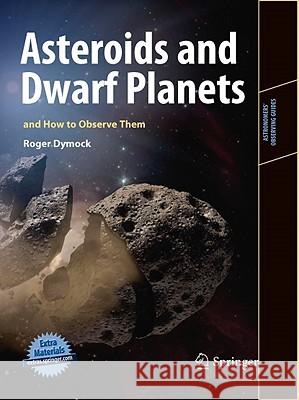Asteroids and Dwarf Planets and How to Observe Them » książka
Asteroids and Dwarf Planets and How to Observe Them
ISBN-13: 9781441964380 / Angielski / Miękka / 2010 / 248 str.
Dwarf planets (which were formerly called asteroids except for the planet Pluto), and the smaller Solar System bodies still called asteroids today, are making front page news, particularly those that are newly discovered and those that might present a hazard to life on Earth by impacting our planet. In this age of giant telescopes and space probes, these small Solar System bodies have advanced from being tiny points of light to bodies worthy of widespread study. This book describes the dwarf planets and asteroids themselves, their origins, orbits, and composition, and at how amateur astronomers can play a part in their detection, tracking, and imaging. The book is divided into two parts. Part I describes physical properties (including taxonomic types) of dwarf planets and asteroids, how they formed in the early life of the Solar System, and how they evolved to their present positions, groups, and families. It also covers the properties used to define these small Solar System bodies: magnitude, rotation rates (described by their light-curves), and orbital characteristics. Part II opens with a description of the hardware and software an amateur or practical astronomer needs to observe and also to image asteroids. Then numerous observing techniques are covered in depth. Finally, there are lists of relevant amateur and professional organizations and how to submit your own observations to them.











